"Does your cat's meowing keep you up at night or leave you puzzled during the day? You're not alone. Let's uncover the secrets behind those persistent vocalizations—and find harmony for both of you."
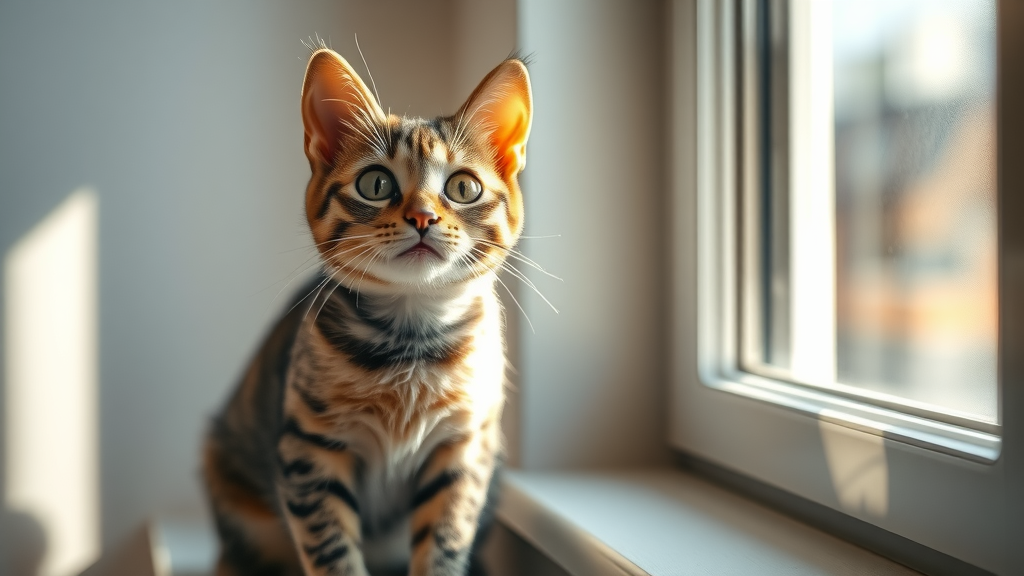
Why Is My Cat Meowing So Much? Unlocking the Reasons Behind Excessive Meowing
Are you wondering, why is my cat meowing so much? If your furry friend’s voice fills your home more than you’d like, it’s time to explore what’s truly behind all those cat meows. Cats meow for many reasons: to communicate, express needs, or alert you to changes in their environment. Sometimes, those frequent meows can become disruptive, leading to sleepless nights or anxious days for both you and your pet. Understanding the root of excessive meowing is the first step toward restoring peace in your household.
In this guide, we’ll decode the secret language of cat meowing, discuss how to differentiate between normal vocalization and signs of distress, and offer actionable tips to help you and your cat live harmoniously. Whether your adult cat is meowing excessively for food, attention, or something more serious, this article provides expert advice, real-life tips, and practical checklists to support both you and your feline companion. Let’s unlock the reasons together and enjoy a quieter, happier home!
- Common causes of cat meowing and meowing excessively
- Ways to interpret your cat's meow patterns
- Solutions to minimize unwanted meowing
- When to consult a professional veterinarian
Common Reasons Why Cats Meow: Decoding the Cat Meow
Cat Meowing for Attention: Social Triggers and Communication
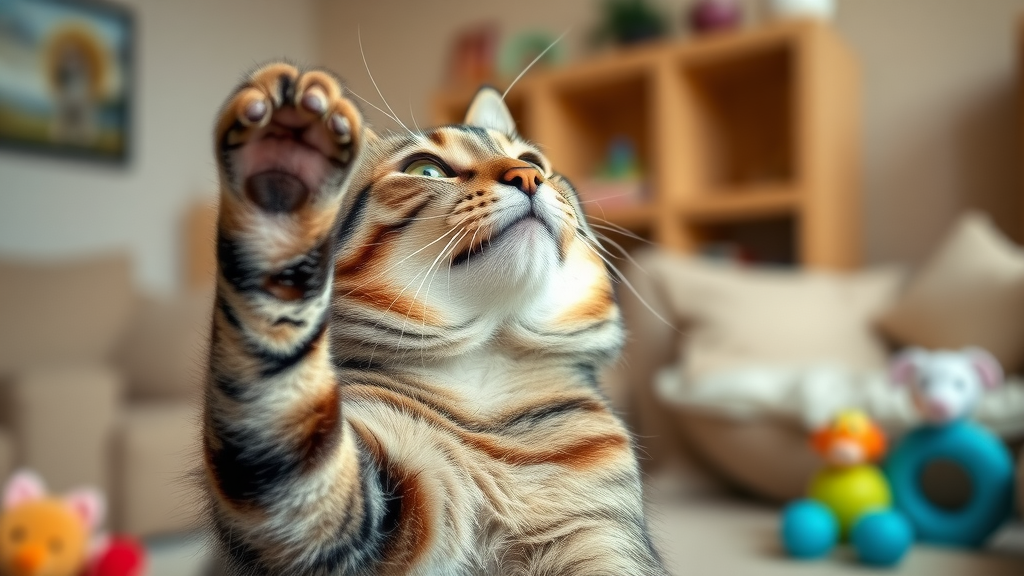
Cats communicate with humans in a variety of ways, and meowing is one of their primary methods. When your cat is meowing frequently and staring at you expectantly—or perhaps even pawing or rubbing against your leg—it’s often a sign they’re seeking connection. Unlike wild counterparts, adult cats meow mostly to interact with people. Social triggers like changes in your routine, less playtime, or new people in the house can all prompt a noticeable uptick in vocalizations.
These meows are not simply random sounds; each cat meow carries an intent: a request to be petted, to play, or even to snuggle on the couch. Feline experts agree that paying attention to the circumstances of the meows—time of day, what’s happening around your cat, and their body language—can offer important clues about what your pet is asking for. Recognizing these social triggers helps keep your relationship strong and prevents unwanted behavior from spiraling.
Meowing Loudly: Hunger, Boredom, and Environmental Factors
A common reason for meowing loudly is hunger or thirst. Cats often develop the habit of vocalizing around feeding times or when their water bowl needs filling. They may also meow a lot if their food preferences change or if meals are delayed—even a slight shift in routine can spark protest meows. Boredom is another leading cause; without enough stimulation, cats may become restless and seek your attention vocally. Environmental factors like a new household member, pet, or a move can also create anxiety, which leads to an increase in excessive meowing .
Some cats are especially sensitive to changes in their daily life. A shift in furniture, a different scent, or visiting relatives can disturb their sense of security, causing them to meow excessively as a response. Ensuring a predictable environment and regular interactive play sessions can greatly reduce these unwelcome vocal outbursts, making both pet and owner more comfortable and relaxed.
Medical Reasons for Cat Meowing Excessively
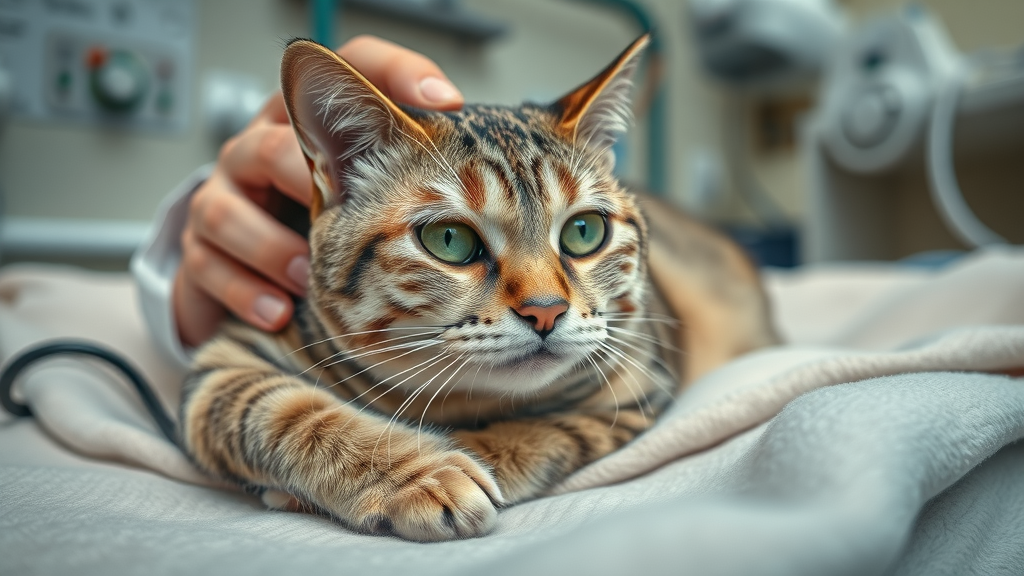
If your cat begins meowing excessively without an apparent reason, a medical condition may be the culprit. Common health issues that prompt cats to meow a lot include overactive thyroid (hyperthyroidism), kidney disease , dental pain, urinary tract issues, or even undiagnosed injuries. Older cats, or elderly cats , are especially prone to these conditions, and their meows may be cries for help rather than complaints.
It’s important never to dismiss sudden or drastic changes in your cat meowing patterns. If your cat is persistently vocal and seems out of sorts—especially if accompanied by signs like weight loss, aggression, confusion, or withdrawal—a visit to the vet should be your next step. Early intervention can make all the difference, both for your cat’s well-being and your peace of mind.
Meowing Excessively Due to Cognitive Dysfunction in Older Cats
As cats age , they may develop cognitive dysfunction —the feline equivalent of dementia or Alzheimer’s. Older cat vocalizations can be more frequent, confused, or even plaintive as a result. These meows often occur in the middle of the night and are linked to disorientation, memory loss, or anxiety. Elderly cats may meow loudly because they forget where their litter box is, can’t locate food, or simply feel lost in their own home.
Understanding the difference between routine cat meows and those triggered by cognitive decline is key. Cognitive dysfunction often appears gradually but worsens with time, requiring patience and special care. If you notice changes like aimless wandering, altered sleep patterns, or your senior cat crying more often, speak with your veterinarian about possible management strategies that can reduce stress for both you and your pet.
Litter Box Issues Causing the Cat Meow
Litter box problems are a common reason for vocal complaints among cats of all ages. If the litter box is dirty, moved, or not easily accessible, your cat may protest with loud, persistent meows. Sometimes, medical problems like urinary tract infections or constipation can make the litter box unpleasant or painful, further encouraging your cat to “tell” you about their distress.
To decode if your cat’s meowing is litter box-related, watch for additional signs: scratching outside the box, avoiding it entirely, or sudden accidents elsewhere in the house. Ensure that the litter box is kept clean, private, and consistent in location. Taking swift action can both stop meowing and prevent long-term anxieties or medical issues related to poor bathroom habits.
| Trigger | Typical Symptoms | Solution |
|---|---|---|
| Hunger | Meowing loudly at meal times | Set feeding schedule |
| Attention | Pawing, rubbing, following | Play sessions |
| Medical issue | Persistent, unusual meows | Vet visit |
| Litter box | Scratching outside box, vocalizing | Clean/change box |
Understanding the Many Types of Cat Meows and Their Meanings
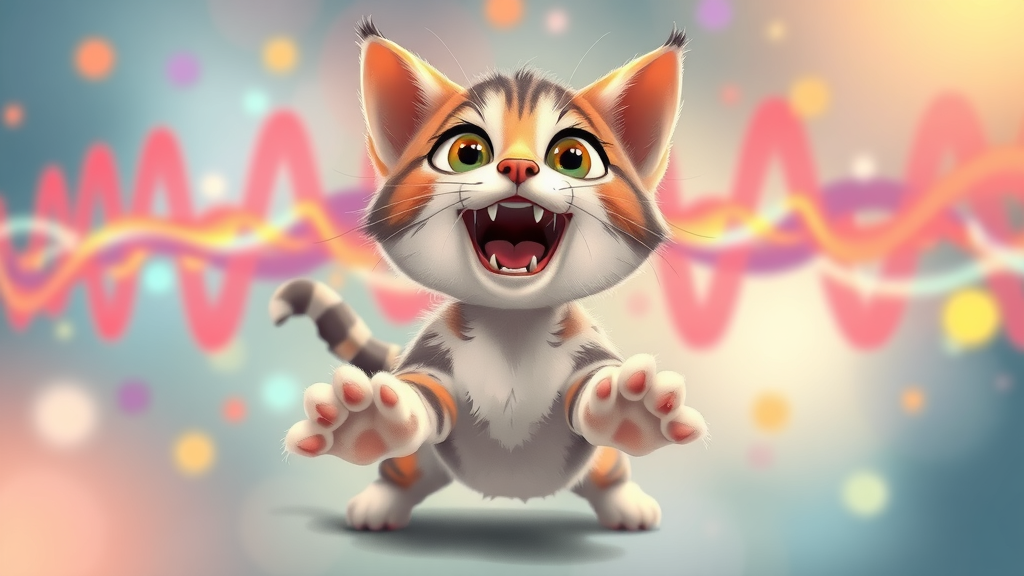
Not all cat meows are created equal. Cats communicate complex messages through their vocal range, from chirps and trills to yowls and howls. Learning to distinguish between the different types and patterns of cat meowing can help you respond more effectively to your pet’s needs, reducing excessive meowing by fulfilling their requests or identifying when something is wrong.
A sharp, urgent meow might mean hunger or sudden pain, while a series of soft meows could signify a need for affection. Adult cats, kittens, and even specific breeds all develop their own “dialects,” and a keen owner can soon learn the unique vocabulary of their feline friend. By observing these vocalizations over time, you’ll be better equipped to provide comfort and solutions, leading to a calmer household dynamic.
What Does It Mean When a Cat Meows Loud? Interpreting Vocalizations
A meow loud enough to startle you usually indicates high emotion or distress. Cats instinctively raise their “volume” when they feel ignored, threatened, or are in pain. Certain breeds, like Siamese, are genetically predisposed to be more vocal, but excessive volume from any cat may be a red flag.
When meowing loudly becomes consistent—especially during the night—it’s crucial to pay attention to context. Is your cat locked out, hungry, or experiencing household changes? Loud meows can also come from adult cats expressing anxiety when left alone. The right response is to check for obvious needs first, then evaluate for underlying stress or health problems.
How the Cat Meowing Pattern Reflects Emotional Health
A sudden shift in your cat’s meowing pattern—such as increased frequency, duration, or intensity—often signals emotional upheaval or discomfort. Sudden meowing a lot can be your cat’s way of alerting you to loneliness, fear, or even boredom. Watch for clues in your cat’s environment, such as the arrival of new pets, construction noises, or family disruptions which could impact their emotional health.
Behavioral enrichment, stable routines, and plenty of positive interactions can dramatically improve your cat’s mood and meow habits. Remember, cats communicate their needs, anxieties, and even affection through their voice. Giving them opportunities to destress, such as window perches and interactive play, can curb unwanted vocalization and make for a more harmonious household.
Why Male Cats Meow Excessively: Distinct Causes
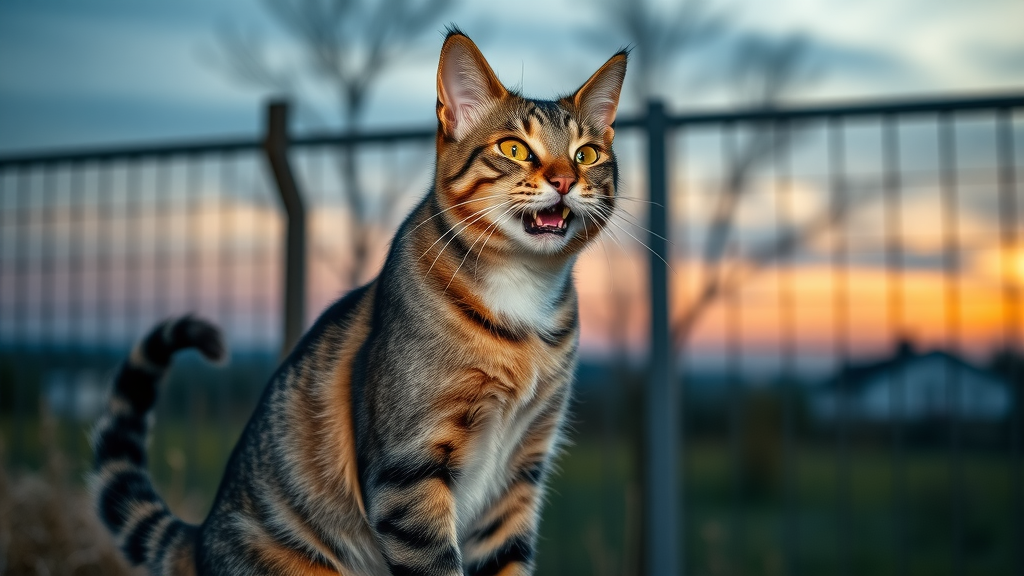
Many owners ask, “do male cats meow excessively for a reason?” Unneutered males, in particular, are prone to meowing a lot during mating season. These meows often come with attempts to escape, restlessness, or spraying behavior, all of which are related to hormones and the search for a mate. Neutering generally reduces both the urge to roam and vocalization, but some instinctive patterns may persist, especially in certain breeds.
Medical and behavioral problems can also trigger excessive meowing in a male cat . Urinary blockages, anxiety, or lack of stimulation can all cause vocal distress. If you notice behavioral changes or unusual meowing patterns, consult your vet to rule out medical issues, and consider environmental enrichment for ongoing peace.
Female Cat Meowing Patterns: Is There a Difference?
While both female cats and males meow, intact females will often vocalize more during estrus (heat). These meows are distinct—long, drawn out, and plaintive—meant to attract mates. Spayed or neutered cats usually show fewer hormone-driven behaviors, but may still meow for food, attention, or out of habit.
On a day-to-day basis, differences between male and female meow patterns are more about individual personality and environment than gender alone. What matters most is tracking what’s normal for your pet and responding compassionately to signs that something has changed.
"A cat's meow is their voice—each sound a message waiting to be understood." —Veterinary Behaviorist
Behavioral vs. Medical: How to Tell Why My Cat Is Meowing So Much?

Distinguishing between a behavioral cause (like boredom or attention-seeking) and a medical condition can be tricky, but context is key. Start with the basics: Has there been a recent change in your home routine? Are there new people, pets, or sources of stress? Behavioral meowing often fluctuates with routine or environmental shifts, while persistent, unexplained, or painful-sounding meows may indicate underlying illness.
A thorough check of the litter box , food, and water can also point you toward the answer. If your cat’s needs are all met and the vocalizing continues with signs like weight loss, confusion, or changes in mobility, consult your veterinarian promptly.
Is Your Cat Meowing Excessively Out of Habit?
Habits form quickly with pets—if meowing gets them snacks or attention, they’ll keep at it! Intermittent reinforcement, such as feeding or petting your cat in response to every meow, encourages them to meow more. To change this pattern, reward quiet behavior instead, gradually teaching your pet that silence, not noise, gets your attention.
Patience and consistency are key. Ignore unnecessary meows, provide enrichment, and reinforce calm moments. Over time, your cat’s learned behaviors will shift towards a more peaceful coexistence.
Common Illnesses That Cause a Cat to Meow Loudly
Health issues often manifest in loud, persistent vocalizations, especially in older cats . Conditions such as kidney disease , overactive thyroid , dental pain, arthritis, or unexplained injuries can lead to restless nights and frequent crying. Always observe for other symptoms: limping, hiding, appetite changes, or signs of discomfort.
If you suspect illness, seek professional advice right away. Prompt treatment may resolve both the underlying issue and the excessive meowing, restoring comfort and contentment for your pet.
How Cognitive Dysfunction Influences the Cat Meowing Pattern
Cognitive dysfunction in older felines results in both increased vocalization and altered behavior—like confusion, wandering, or reversed sleep cycles. Signs include meowing loudly at night, staring at walls, or failing to recognize familiar people and places.
There is no cure for cognitive dysfunction, but diet changes, calming products, and structured routines can help manage symptoms and minimize distress. Talk to your vet about the best options for supporting your senior cat as they age.
Can Anxiety Cause the Cat Meow to Become Excessive?
Absolutely. Cats are sensitive creatures, and stress or unaddressed anxiety can lead to constant vocalizing. Common causes include separation anxiety, loud noises, new animals, or major changes in the household.
Reducing your cat’s stress through play, routine, safe havens, and calming aids (like pheromone diffusers) can ease anxieties and reduce meowing excessively . Professional advice may also be helpful for persistent cases.
- Track the frequency and context of cat meows
- Observe if meowing changes with new routines or people
- Inspect the litter box, food, and water accessibility
- Schedule regular veterinary checkups
How to Stop Meowing? Solutions for Excessive Cat Meowing
Providing Enrichment to Minimize Unwanted Cat Meowing
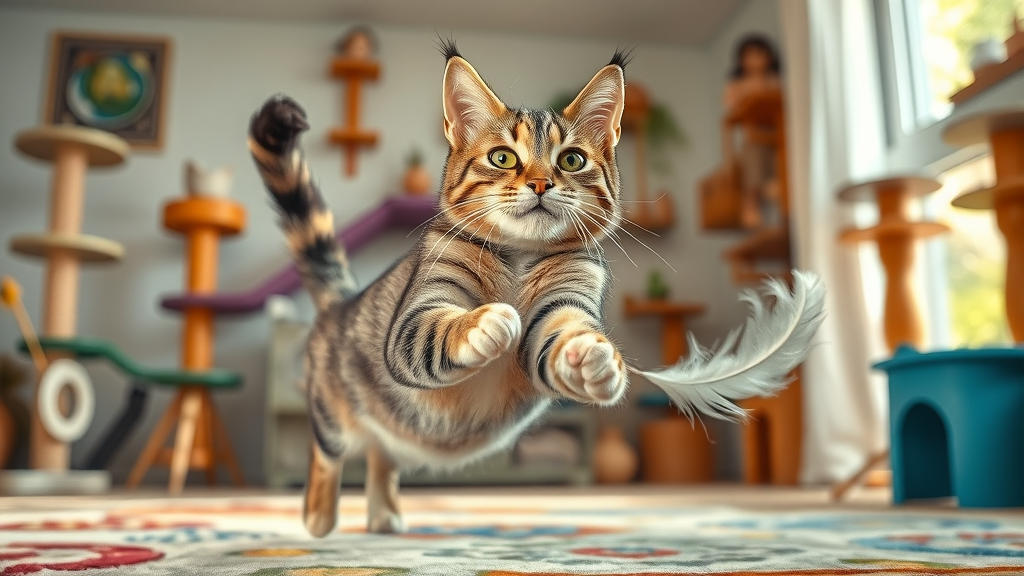
Boredom is a leading cause of cat meowing . Enriching your cat’s environment with interactive toys, puzzle feeders, window perches, and regular playtime can significantly reduce unwanted vocalization. Even a short interactive session with a feather toy can redirect your pet’s focus, turning meowing into play, which is healthier physically and emotionally.
For indoor cats or those with limited stimulation, try rotating toys and changing play routines to keep things fresh and exciting. A variety of activities—chasing, climbing, scratching—can help satisfy their natural instincts and lead to a quieter, contented companion.
Training Techniques: Teaching Your Cat When Not to Meow
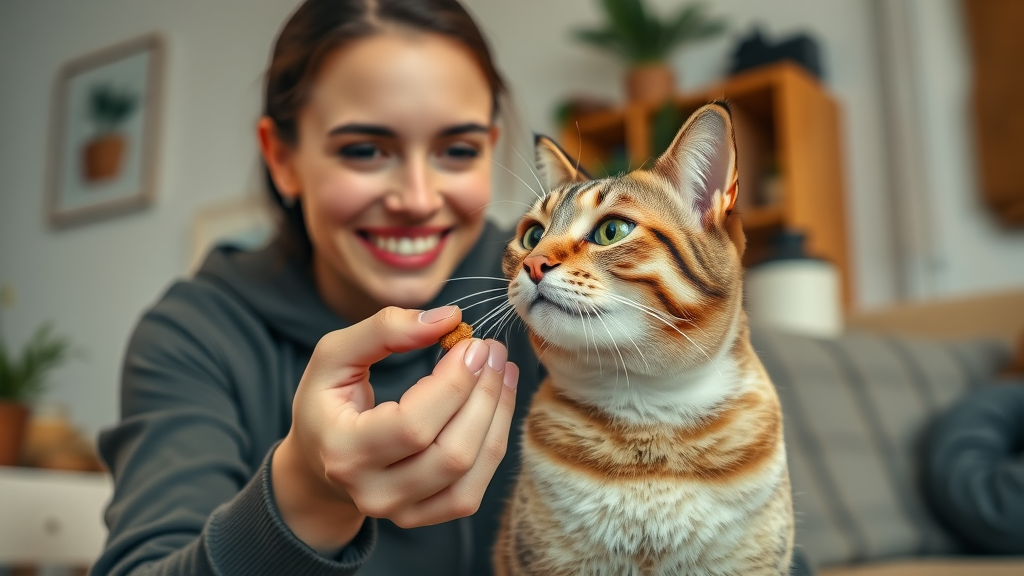
Training your cat not to meow excessively is possible with patience and positive reinforcement. When your cat is quiet, provide praise, treats, or attention. If they begin to meow unnecessarily, wait for a pause before rewarding them to reinforce silence.
Consistency is important. Avoid punishing your cat for meowing—it rarely works and can increase anxiety. Instead, redirect their energy toward positive activities or offer a favorite toy during particularly vocal periods. Over time, your pet will learn which behaviors garner positive attention.
When to Seek Veterinary Help for Meowing Excessively
If you’ve tried environmental and behavioral solutions and your cat is meowing more than ever, it’s time to consult your vet. Medical conditions such as thyroid disorders, urinary tract disease, or pain can’t be resolved with training alone.
Don’t wait if your cat shows other signs of illness—weight changes, confusion, appetite loss, or lack of thirst. Early intervention is the best way to return your pet and your home to a peaceful state.
Products That Help Decrease Excessive Meowing
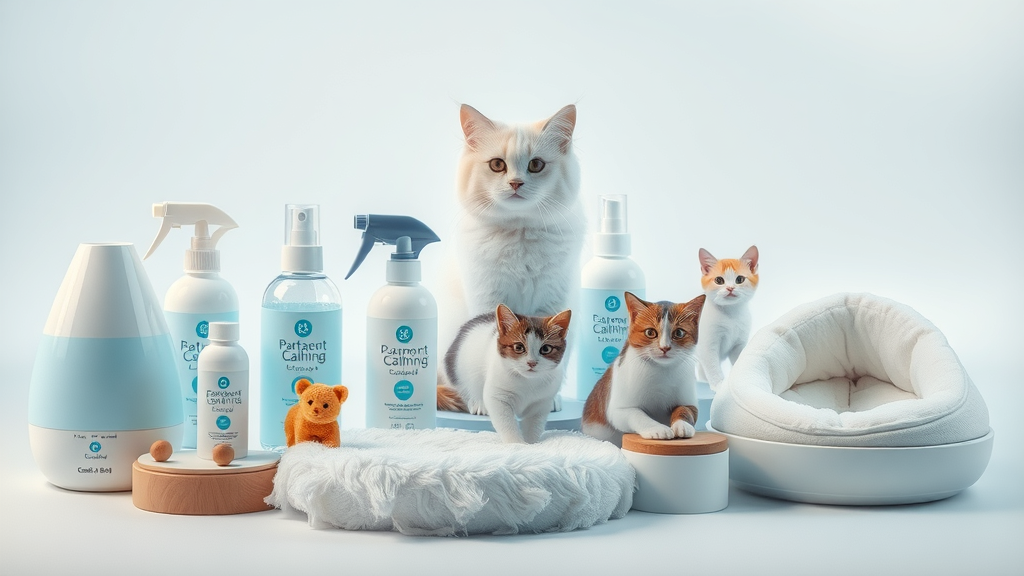
There are a host of modern products designed to minimize excessive meowing : pheromone diffusers, calming sprays, soothing beds, and food puzzles all work to bring a sense of calm. These solutions are especially effective for cats prone to stress or left alone for long periods.
Puzzle feeders and window-mounted bird feeders offer entertainment that keeps cats occupied and less focused on vocal demands. Choose products based on your cat’s specific needs, and experiment to find out what works best for your unique household.
| Issue | Tip | Expected Outcome |
|---|---|---|
| Attention-seeking | Scheduled playtime | Reduced meowing |
| Litter box | Clean box daily | Content silence |
| Anxiety | Calming diffusers | Peaceful cat |
| Medical | Vet consultation | Proper diagnosis |
Why Is My Cat Meowing So Much? People Also Ask
Why does my cat meow constantly for no reason?
A cat rarely meows “for no reason.” Even if it seems unprompted, your cat may be trying to express hunger, boredom, stress, pain, or a desire for attention. Check their immediate environment, ensure their needs are met, and look for any recent changes. If the meowing continues, consider a vet visit to rule out hidden issues.
When should I worry about my cat meowing?
Be concerned if your cat’s meowing is suddenly louder, persistent, or accompanies other changes like eating less, limping, hiding, or aggressive behavior. New patterns of excessive meowing—especially in older cats—can indicate medical problems that should be checked out promptly.
Why does my cat walk around meowing all the time?
Cats may wander and meow due to anxiety, boredom, being in heat (especially the female cat), or medical issues. Senior or cognitively impaired cats often become restless at night. Make sure they have a safe, engaging environment and see your vet if this behavior is new or gets worse.
Should I ignore my cat meowing?
If your cat is healthy and their needs are met, it’s okay to ignore attention-seeking meows occasionally. However, sudden or frequent meowing shouldn’t be dismissed until you’ve checked for medical problems, stress, or changes in their environment. Always reinforce good behavior with attention when your cat is quiet or calm.
Real-life Success Stories: Cats Who Stopped Meowing Excessively
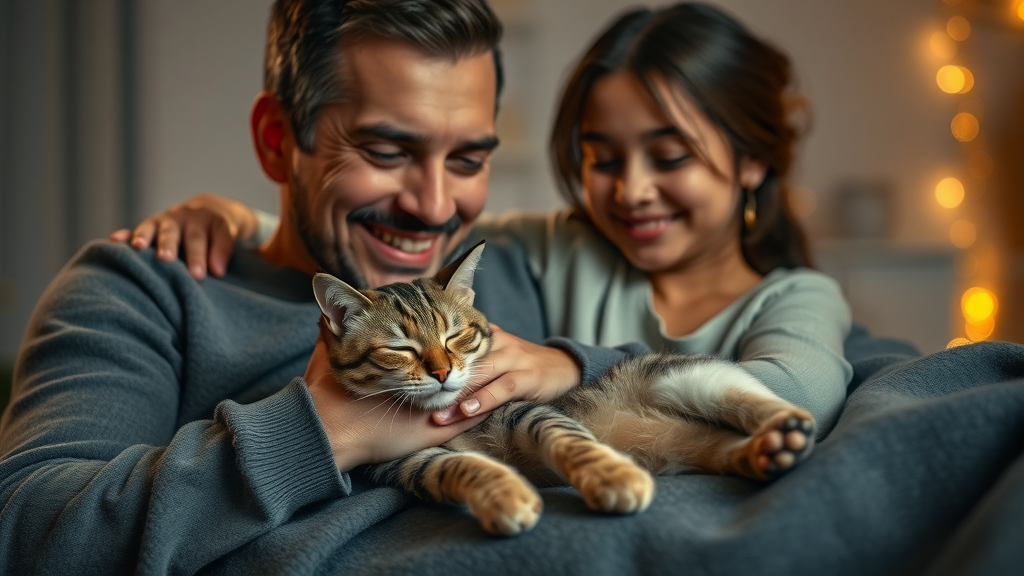
Every cat is different, but positive change is possible. One owner shared, “After adjusting my cat’s feeding schedule, the nightly meowing disappeared. It was a simple fix with a huge impact on our peace of mind.” Another family introduced new scratching posts, which cut their cat’s vocalizations in half. Sometimes, a little detective work and a willingness to adapt daily routines are the keys to solving even the most puzzling cat meows .
"After adjusting my cat’s feeding schedule, the nightly meowing disappeared. It was a simple fix with a huge impact on our peace of mind." —Subscriber, Monthly Newsletter
FAQ: Your Top Questions About Why Is My Cat Meowing So Much?
- How much meowing is normal for a cat?
- Does breed affect how much cats meow?
- Is there a difference between male cat and female cat meows?
- How do I know if my cat is meowing in pain?
- Will my kitten grow out of excessive meowing?
Expert Tips to Find Peace When Your Cat Meows Loudly
- Create a predictable daily routine
- Use interactive toys to reduce boredom
- Ensure medical issues are managed
- Reward silence rather than vocalization
What Every Cat Owner Should Know to Minimize Excessive Cat Meowing
- Monitor for changes in your cat’s meowing pattern
- Regular wellness vet visits
- Address litter box and feeding area hygiene
- Socialization and enrichment are vital
Subscribe Now for More Peaceful Days with Your Cat
Your pet deserves the best. Let us help! Our monthly newsletter is packed with tips, treats, and tools to keep tails wagging and whiskers twitching. 🐾 Subscribe today — because you're their favorite human.
Conclusion
Take action today: Observe your cat, address their needs, and seek expert guidance when necessary—your efforts will be rewarded with quiet companionship and a happier home.
Understanding why your cat is meowing excessively is crucial for addressing their needs and ensuring a harmonious home environment. Common reasons for increased vocalization include seeking attention, hunger, stress, medical issues, aging-related cognitive changes, and mating behaviors.
For a comprehensive overview of these causes and practical solutions, consider reading the article “ Why Does My Cat Meow So Much? ” by the North Shore Animal League. This resource delves into various factors contributing to excessive meowing and offers actionable advice to help manage and reduce this behavior.
Additionally, the ASPCA provides valuable insights in their article “ Meowing and Yowling .” This piece explores the different types of cat vocalizations, their meanings, and effective strategies to address them.
By consulting these resources, you can gain a deeper understanding of your cat’s behavior and implement appropriate measures to foster a quieter and more contented household.
 Add Row
Add Row  Add
Add 




Write A Comment